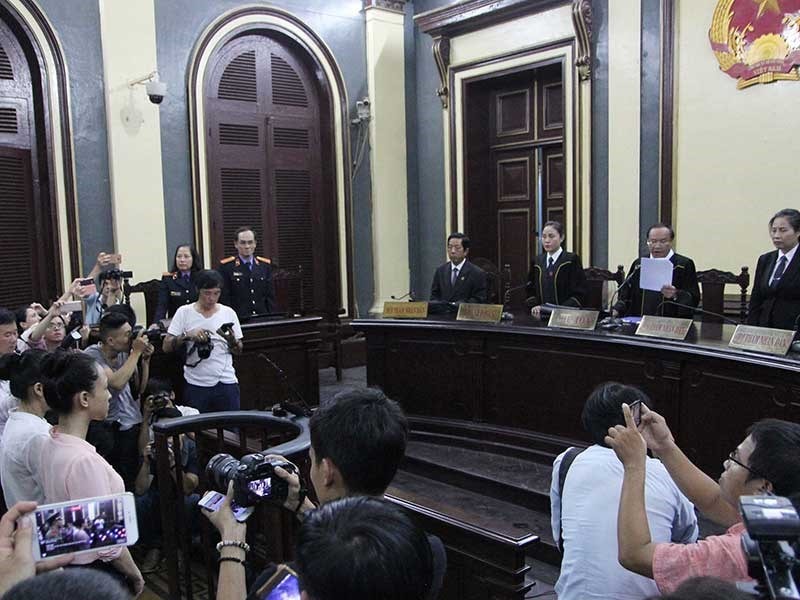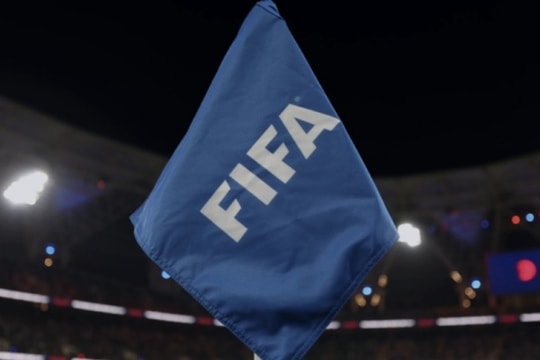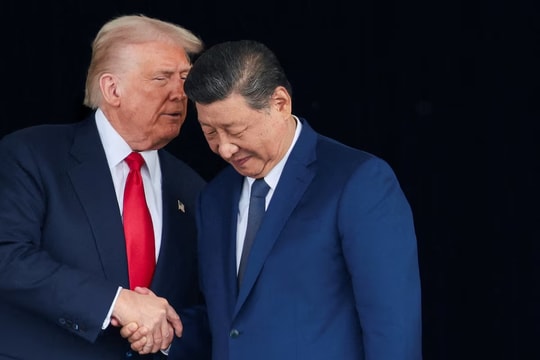Public Verdict: Who's Afraid, Who's Not?
Publicity of judgments is a big step forward in promoting judicial reform so that each judgment approaches justice and fairness.
The Supreme People's Court's Judicial Council has just issued a resolution on the publication of judgments and decisions on the court's electronic information portal and has implemented it in practice. Commenting on this, National Assembly delegate - lawyer Truong Trong Nghia said: "The publication of judgments according to the Supreme People's Court's resolution is in accordance with the principle of public trial".
A big step forward in the judicial field
Reporter: Sir, what is understood by the public announcement of the verdict in accordance with the principle of public trial?
+ National Assembly Representative Truong Trong Nghia: This means that if the trial is public, the logic is that the verdict is also public. In many countries, publicizing the verdict is a matter of course. The State is responsible for establishing an archival system so that people can conveniently research the verdict.
So why is it only now that Vietnam is implementing public judgments?
+ First of all, it is possible that due to war conditions, which entailed the need for confidentiality, the public disclosure of the verdict was not carried out. Because in wartime, even the conditions for public trials are limited. Slow economic development is also a reason when there are not enough conditions for trials and archives. Many verdicts in the past had to be written on poor quality paper... Those are objective reasons.
. What about subjective conditions?
+ The main thing is that the awareness and viewpoint on the principle of public trial are still not complete. There used to be the notion that: The trial is public, so there is no need to raise the issue of public judgment. Public trial means everyone comes and watches the trial, but storing the judgment so that everyone can access it is another matter.
The Supreme People's Court's Council of Judges issued a resolution on public judgments, which means that all judgments must be better archived and that everyone has the right to access them. This is a huge step forward in the judicial sector of Vietnam.
. In your opinion, does publicizing the verdict put more pressure on judges, juries and other prosecution agencies?
+ Of course. When the verdict is made public, the requirements for the trial, the panel of judges, each judge, and even the people's assessors are also higher. But in my opinion, announcing the verdict is only the first step. Because according to the principle of publicity and transparency, even the minutes of the trial must be made public. Because only then will all activities of the court, from questioning, arguing, examining evidence... be fully revealed.
In some countries, even the minority opinion of the jury is printed in the judgment so that when people read it, they understand that the judgment was passed by the majority. The minority opinion recorded in the judgment is a pressure for the trial.
So when the verdict is made public, the trial process will surely change, sir?
+ First of all, when preparing for the trial, it must be scientific and effective, so that the verdict will be of good quality. Because when all components in the trial, from the jury, prosecutor, lawyer... are not well organized, there cannot be a good verdict.
When the verdict is announced, the arguments of the verdict will of course be examined more carefully. It explains why the defendant was not convicted of intentional injury but was convicted of murder; why the defendant was not convicted of rape but only convicted of having sex with a minor...
 |
| Making the verdict and decision public will make the jury more cautious. Photo: HOANG GIANG |
Judges and… case writing skills
. But can I not always see the coherence as you just mentioned when reading a verdict?
+ This is a problem related to the judgment, or the writing style and writing level of the judges. Currently, even in high courts, many judgments still have grammatical and vocabulary errors... Now when the judgments are made public, the judges must improve their writing level (judgment). Because if not, the people reading the judgment will not know what the judge said and the public will be negatively affected. And the public will immediately know which judge is bad and which judge is good.
But what is also worth noting is that when the verdict is made public, the public will know whether the verdict is fair and whether it ensures justice or not. The verdict is a pressure on form, but the arguments and reasoning of the verdict are a pressure on content. These two pressures cannot be separated.
Many judges are good at applying the law, but if they cannot write, their arguments and reasoning will not be able to be articulated. The technical elements of writing a case can have a profound impact.
. But it is not possible to improve a judge's ability, especially in writing cases, overnight...
+ This creates pressure for the training of judges. Skills in writing, eloquence, coherence… to convince the public will have to be focused on more. And certainly this work will be more perfect in the future.
But I want to emphasize another issue, which is the principle of precedent. Making judgments public will promote precedents to be formed more quickly and closer to reality. Vietnam has allowed the application of precedents in litigation and adjudication. So if you want precedents, you have to study judgments.
The Supreme People's Court has published precedents. If lawyers research and find judgments that are not among the precedents but are valuable to their defense position and viewpoint, they have the right to cite them.
For example, when I look for cases of intentional injury or traffic accidents, there will be judgments that show the investigation conclusions and indictments contrary to those judgments. Then lawyers, defendants, and accused have the right to use the arguments in those judgments to shed light on their own cases and their clients' cases. It helps to form precedents quickly, richly, and better approach the reality of trial.
Pressure on judges
. Not only "forcing approval" with judges, but even training in law schools will also have a positive effect, sir?
+ That's right. The training of bachelors of law up to now, because there are no judgments, is mainly through theory or some examples in the press. When judgments are made public, the training of bachelors of law will be closer to the future professional practice of law students. Law students themselves, during the learning process, have approached and studied judgments, so bachelors of law will be less theoretical. Research work at higher levels such as masters and doctors will also be more practical.
And the work of propagating the law to the people will also be better, sir?
+ It has a huge social impact. People can study the judgments themselves to gain experience for themselves in legal situations. For example, a businessman will look for judgments on banking to gain experience and avoid mistakes in this field.
From here, the press can also access the verdicts, and the reflection of the cases will include comparisons, contrasts, and comments and assessments of the cases.
Particularly for the judiciary, publicizing judgments is a pressure, but a healthy pressure so that the judiciary becomes more and more worthy of its mission, which is to protect justice and social equity.
Thank you.
Public judgment will reduce injustice and mistakes. Making the verdict public will increase the responsibility of the jury and the presiding judge. When conducting a trial, the judge will be aware that the trial is being monitored. The product, the judge's verdict, will be evaluated by public opinion. The quality of the trial will therefore be improved. Wrongful convictions and errors will therefore be reduced when the responsibilities of the jury and the judge are enhanced and monitored more extensively. Of course, wrongful convictions and errors have many causes and can be limited by promoting and improving the quality of litigation in court. Therefore, enhancing the responsibilities of the jury and the presiding judge is also a good measure to reduce wrongful convictions in the trial process. GrandfatherTONG ANH HAO, |
According to Ho Chi Minh City Law









